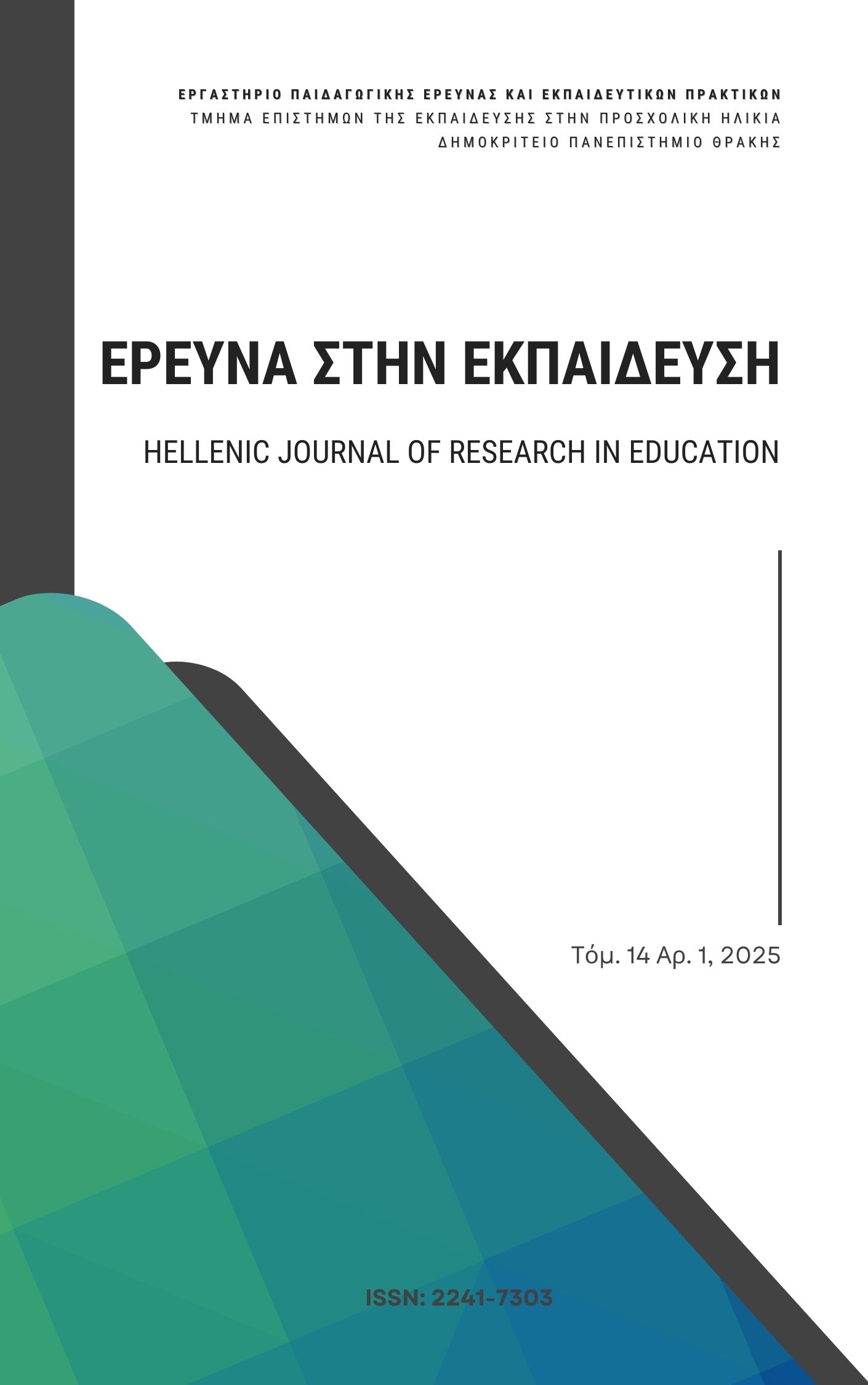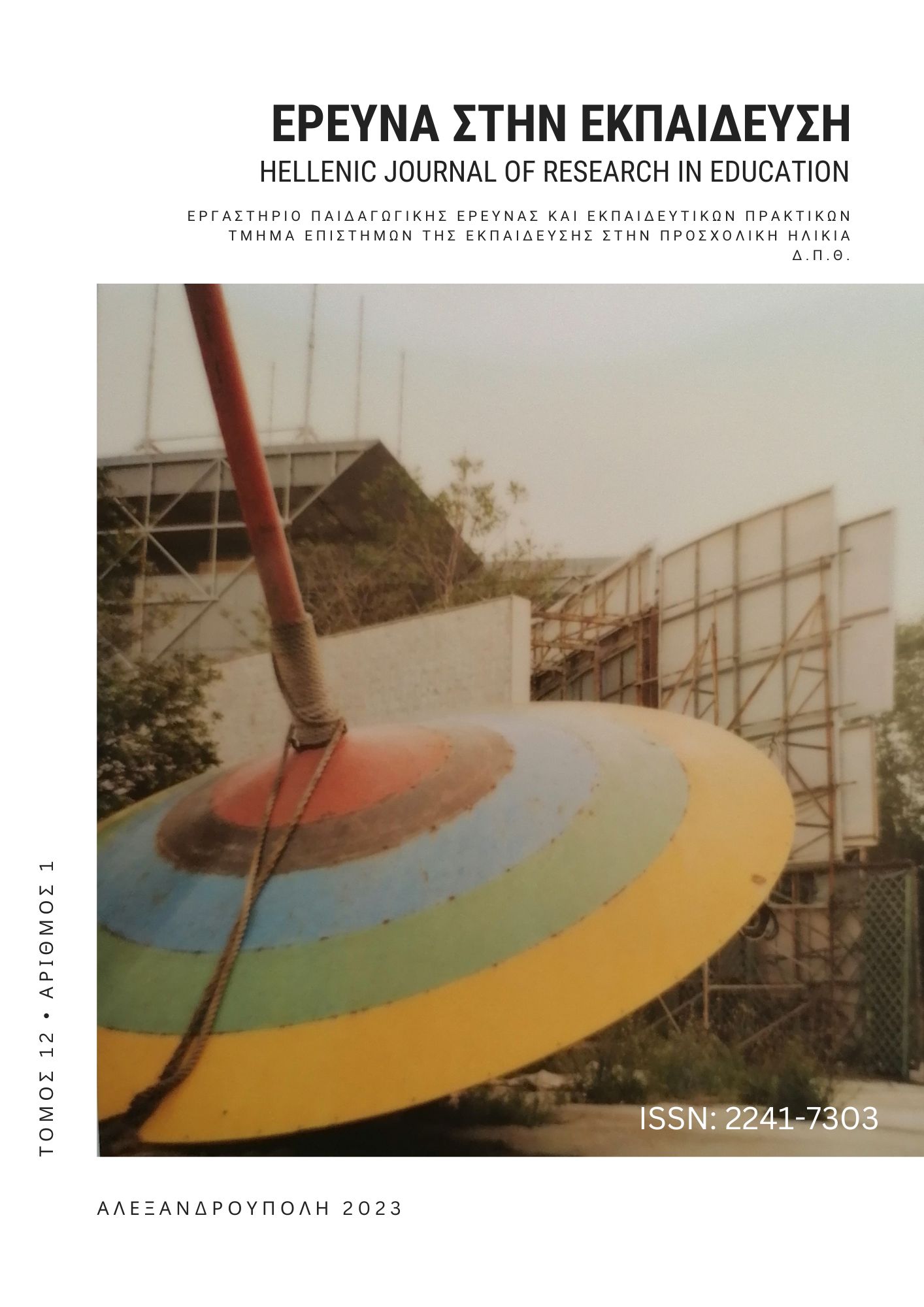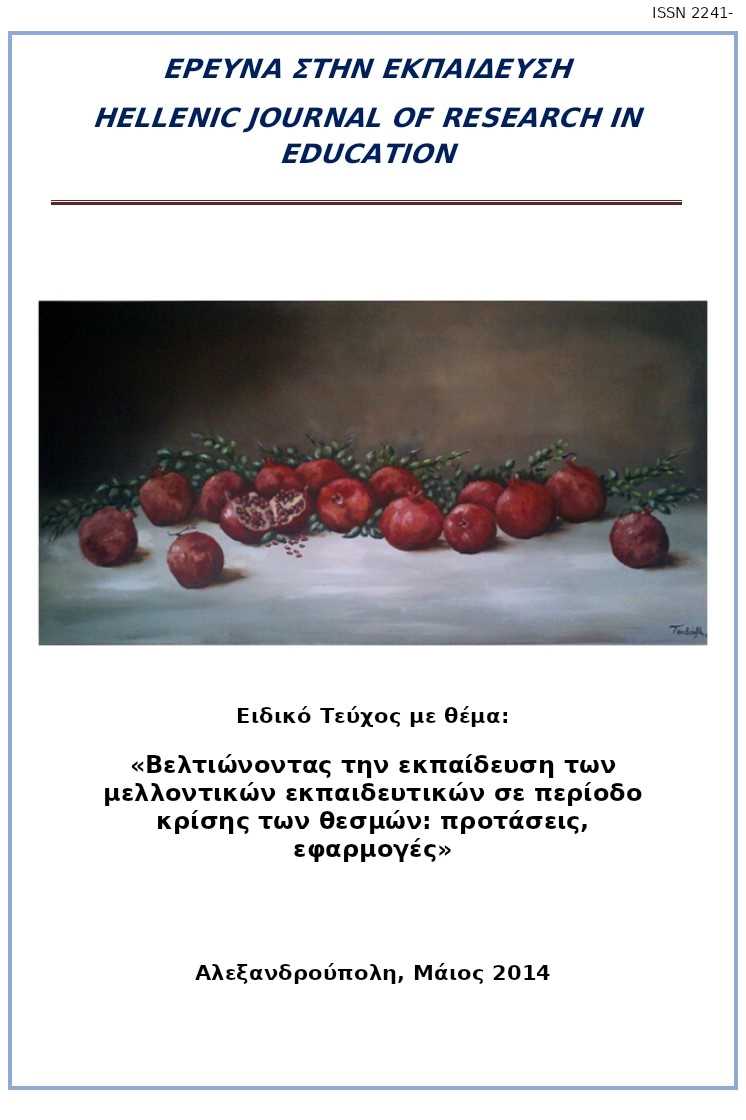Η παρέμβαση “Παγκάκι Φιλίας” (Buddy Bench) για τη διερεύνηση των κοινωνικών σχέσεων μαθητών δημοτικού με και χωρίς αναπηρία ή/και ειδικές εκπαιδευτικές ανάγκες

Περίληψη
Η παρούσα έρευνα εξετάζει τις κοινωνικές σχέσεις μαθητών δημοτικού σχολείου με και χωρίς αναπηρία ή/και Ειδικές Εκπαιδευτικές Ανάγκες (ΕΕΑ), πριν και μετά την εφαρμογή της παρέμβασης «Παγκάκι Φιλίας» στον υπαίθριο χώρο του σχολείου κατά τη διάρκεια του διαλείμματος. Συχνά, τα παιδιά με αναπηρία ή/και ΕΕΑ έχουν λιγότερες φιλίες και είναι λιγότερο αποδεκτά από τους συνομήλικούς τους, γεγονός που αυξάνει την πιθανότητα να αντιμετωπίσουν προβλήματα στις σχέσεις μαζί τους. Η παρέμβαση «Παγκάκι Φιλίας» σχεδιάστηκε με στόχο να ενισχύσει τις κοινωνικές αλληλεπιδράσεις των μαθητών, να προωθήσει τη συμμετοχή τους στο κοινωνικό παιχνίδι και να μειώσει την κοινωνική απομόνωση. Στη μελέτη συμμετείχαν 37 μαθητές από δημοτικό σχολείο της Θεσσαλονίκης, εκ των οποίων 6 είχαν αναπηρία ή/και ΕΕΑ και 31 ήταν τυπικής ανάπτυξης. Στην πρώτη φάση της έρευνας, αξιολογήθηκαν οι κοινωνικές σχέσεις των μαθητών σε ό,τι αφορά την αποδοχή από την ομάδα συνομηλίκων, τις φιλικές σχέσεις στο δίκτυο της τάξης και τη συμμετοχή στο κοινωνικό παιχνίδι. Μετά την ολοκλήρωση της πρώτης φάσης, ξεκίνησε η παρέμβαση και, εν συνεχεία, έγινε νέα συλλογή δεδομένων για τη σύγκριση των αποτελεσμάτων και την αξιολόγηση της αποτελεσματικότητας της παρέμβασης. Τα αποτελέσματα της έρευνας έδειξαν ότι τα παιδιά με αναπηρία ή/και ΕΕΑ είναι λιγότερο αποδεκτά από τους συνομήλικους τους και έχουν λιγότερες φιλίες σε σύγκριση με τους μαθητές τυπικής ανάπτυξης. Η παρέμβαση κατά τη διάρκεια του διαλείμματος συνέβαλε θετικά στη βελτίωση των δεξιοτήτων φιλίας και των κοινωνικών σχέσεων των μαθητών. Τα ευρήματα της έρευνας μπορούν να εφαρμοστούν στην εκπαιδευτική πρακτική για την υποστήριξη των παιδιών με κοινωνικές δυσκολίες, ενώ τονίζουν τη σημασία της φιλίας και την ανάγκη για παρεμβάσεις που ενισχύουν τις κοινωνικές δεξιότητες και το κοινωνικό παιχνίδι στο σχολείο.
Λεπτομέρειες άρθρου
- Πώς να δημιουργήσετε Αναφορές
-
Πολίτη Β., Μπότσογλου Κ., & Σιδηροπούλου Ζ. (2025). Η παρέμβαση “Παγκάκι Φιλίας” (Buddy Bench) για τη διερεύνηση των κοινωνικών σχέσεων μαθητών δημοτικού με και χωρίς αναπηρία ή/και ειδικές εκπαιδευτικές ανάγκες. Έρευνα στην Εκπαίδευση, 14(1), 32–51. https://doi.org/10.12681/hjre.39937
- Τεύχος
- Τόμ. 14 Αρ. 1 (2025)
- Ενότητα
- Άρθρα

Αυτή η εργασία είναι αδειοδοτημένη υπό το CC Αναφορά Δημιουργού – Μη Εμπορική Χρήση – Παρόμοια Διανομή 4.0.
Τα πνευματικά δικαιώματα των άρθρων του περιοδικού ανήκουν στους συγγραφείς. Τα άρθρα διατίθενται με άδειες Creative Commons CC-BC-SA 4.0




